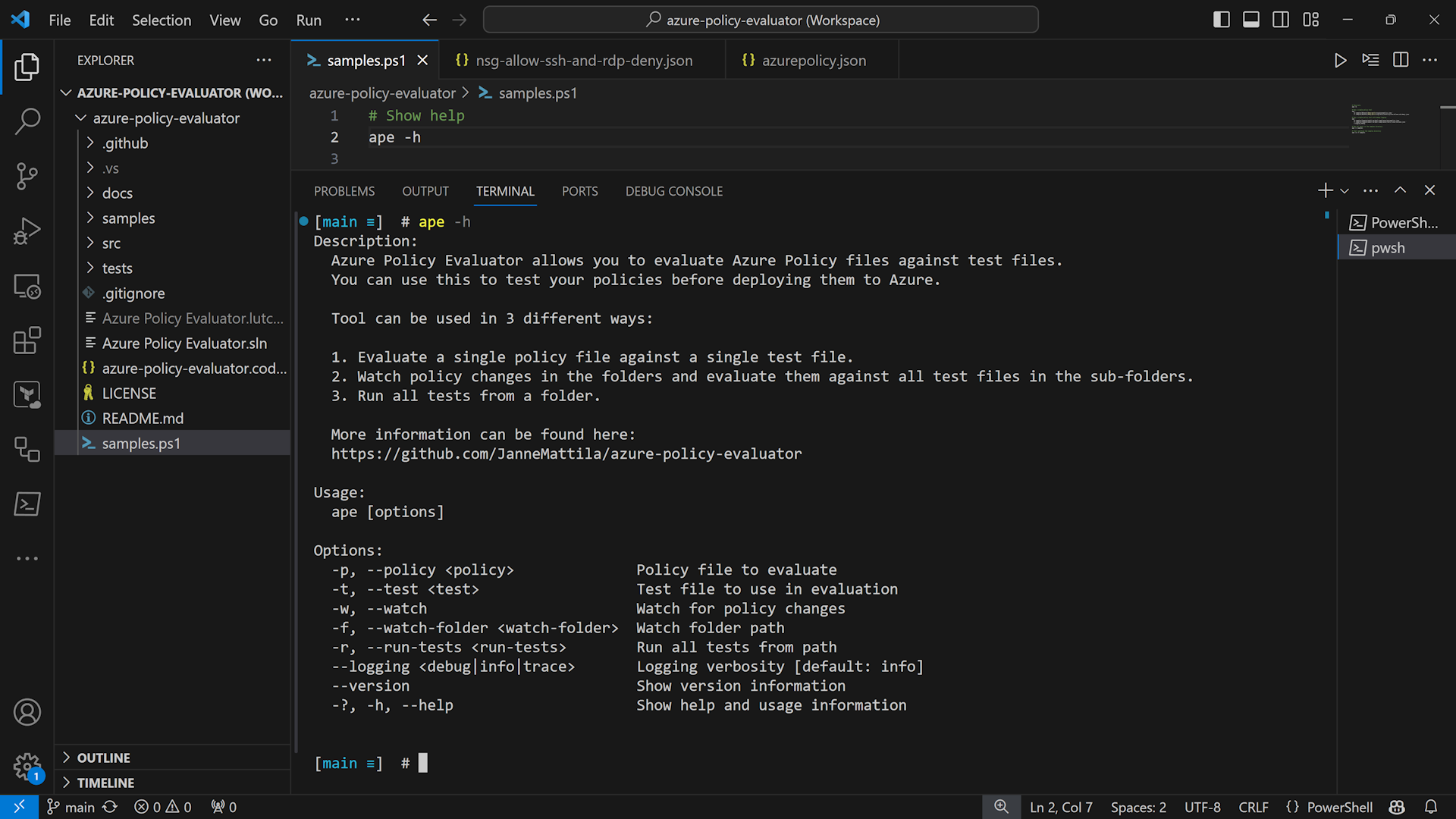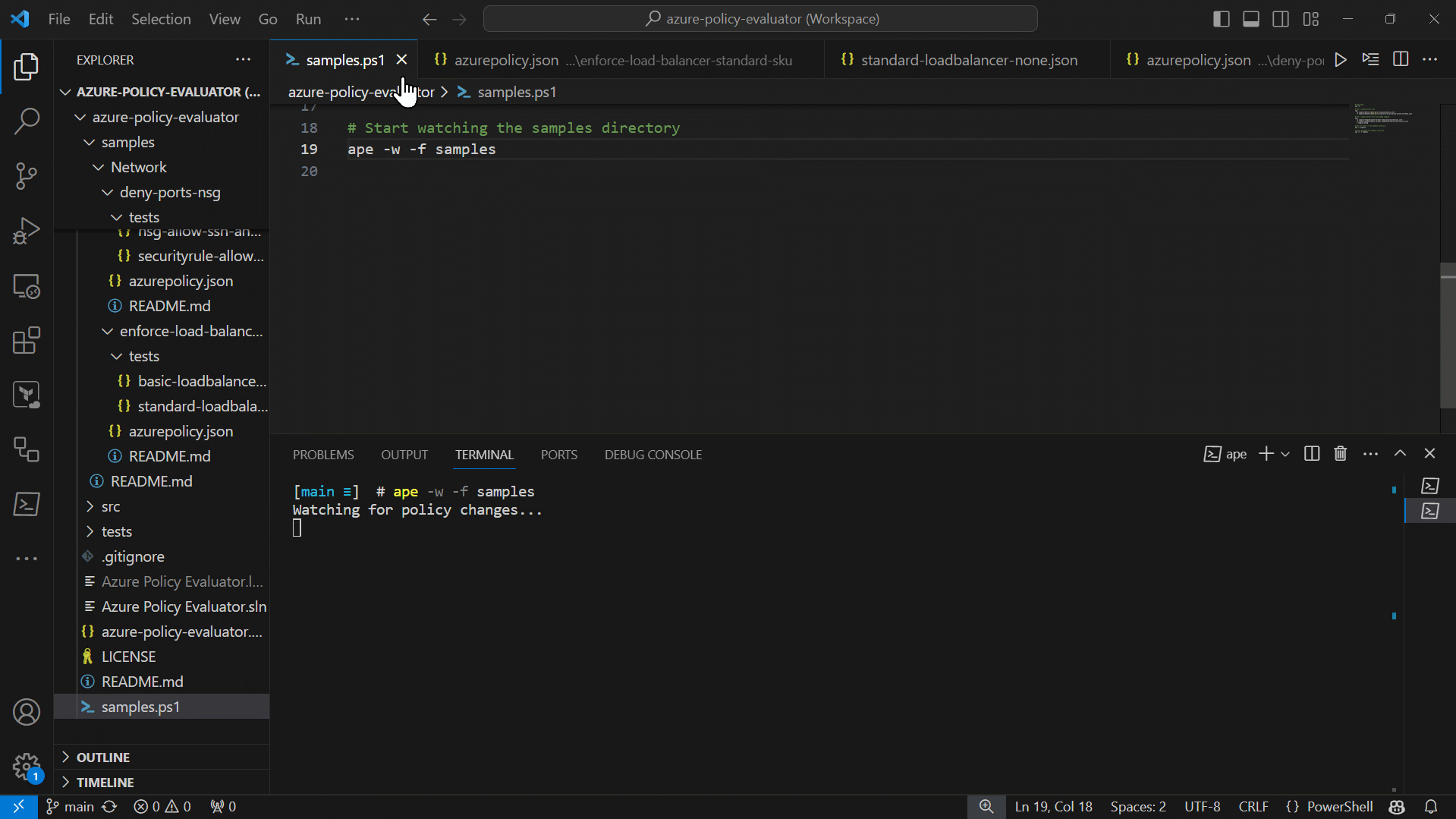Do you see value in Azure Policy Evaluator?
Posted on: February 26, 2024Azure Policy is a powerful tool for enforcing governance and compliance at-scale in Azure. It’s foundational element both in Cloud Adoption Framework and Azure Landing Zones (Enterprise-Scale). It has a lot of material available from Adopt policy-driven guardrails to Azure Policy definition structure. Also there are tons of other excellent resources like AzAdvertizer, Azure Policy Samples, and Community Policy Repo to just name a few. So, we have a lot of material available for creating and managing policies.
However, I’ve not been so happy how the actual policy development process works. For a long time, I have been thinking that it should be much closer to any software development process than it currently is.
If I compare Azure Policy development to e.g., .NET development, then it’s clear that it’s quite different. Let me try to compare these two next.
In .NET development, I can use Visual Studio to write the code and I can use unit tests to verify that it works as expected. This of course improves the quality of the code and makes it easier to maintain and evolve. The feedback loop is instantaneous, and I can see the results of my changes immediately. If I have a good set of tests, I can see the results right away and fix my code when it’s still fresh in my mind. This can be categorized as Inner Loop development.
In Azure Policy development, I typically edit the policy JSON files in a text editor such as VS Code. Then I deploy the policy to Azure and sometimes I must wait for a bit and then start deploying resources to see if the policy works as expected. I must pay a lot of attention to the testing so that I remember to test with correct scenarios to validate my policy. I might easily miss some important test scenarios unless I have them planned and written down. This kind of process is close to any manual release testing process and can categorized as Outer Loop development.
What if Azure Policy development would be much faster to develop and test?
Would we see more policies and with smaller deployment scopes?
Maybe we could see policies created for smaller scope e.g., single app, since it would be fast and straight forward process with low risk.
Azure Policy development doesn’t have to be any different from traditional software development. We could implement a tool that would allow us to develop and test policies in a similar way as we develop and test .NET code. This would allow us to have a much faster feedback loop and we could be more confident that our policies would work as expected.
Therefore, I’ve created an experimental tool called Azure Policy Evaluator!
Idea is simple: Bring the Inner Loop development to Azure Policy development.
Azure Policy Evaluator is a tool that allows you to develop and test Azure Policies without deploying them to cloud. You can work on your Azure Policy files locally and run tests against them using local test files. Test files are nothing more than ARM resources which you can copy from Azure Portal from any resource using “JSON View” in the Overview page. You can then modify the resource content to match the test scenario you want to test.
Here are few screenshots of the tool:
Here is example how to evaluate single policy against single test file:
You can add debug level logging to see how the policy is evaluated:
To run all tests from a folder and its sub-folders:
Here is a short demo of the watch mode in action:
- Policy to enforce
StandardSKU for Load Balancer- Changing load balancer to have
BasicSKU will fail the test since it’s expecting result ofNone
- Changing load balancer to have
- Policy to
Denyports22and3389for Network Security Group- Changing security rule to have port
80enabled instead of22will fail the test since it’s expecting result ofDeny
- Changing security rule to have port
You can find Azure Policy Evaluator and a lot more information about it here:
Please provide feedback in the GitHub Discussions. I would like to know if you see value in this kind of tool.
I hope you find this useful!





 JanneMattila/azure-policy-evaluator
JanneMattila/azure-policy-evaluator